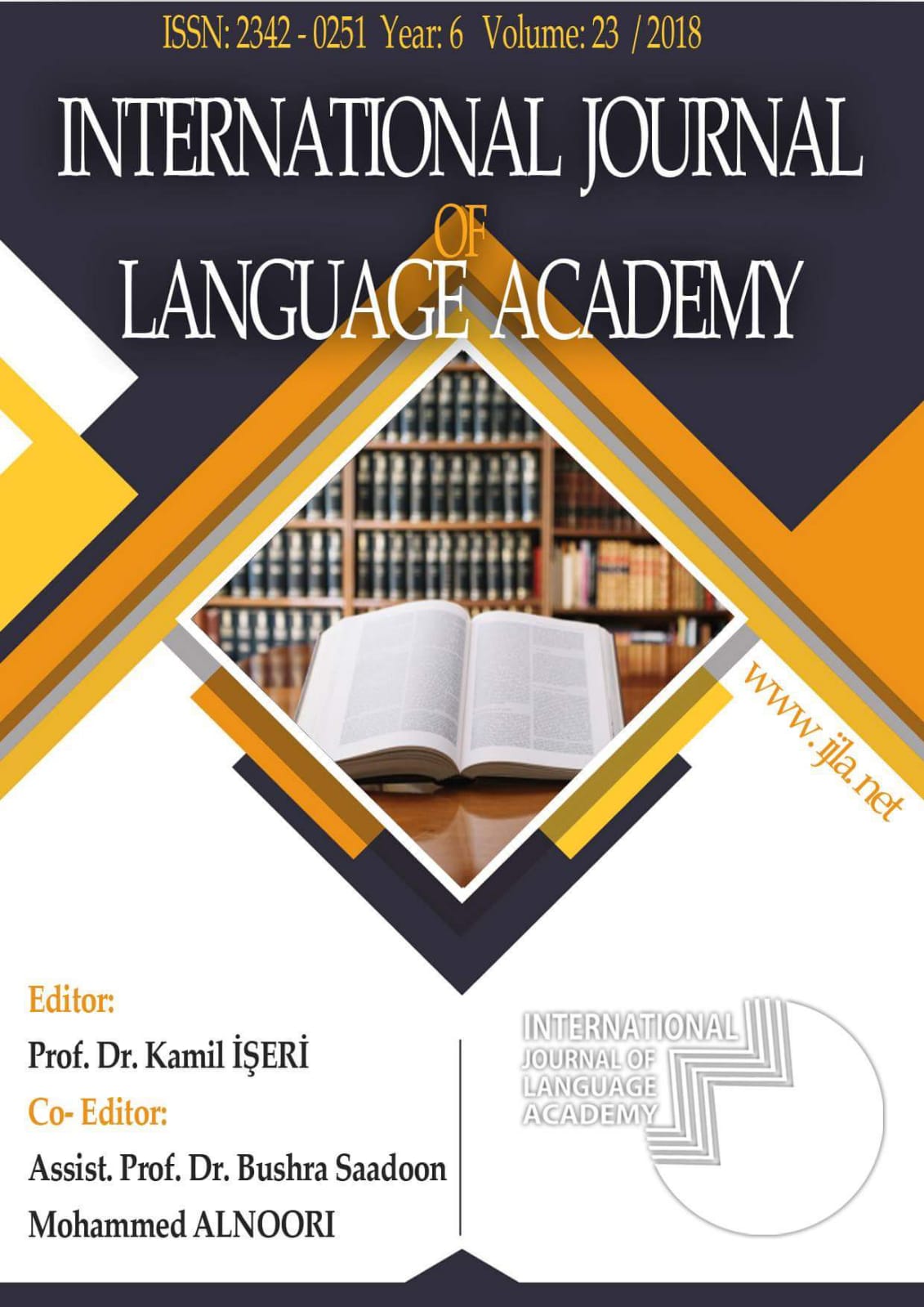Author :
Abstract
Yabancı dil olarak Türkçe öğretimi eğitmenlerinin Türkçe öğretim yöntemiyle ilgili görüşlerinin ele alındığı bu araştırmada amaç, yabancı dil olarak Türkçe öğretimi eğitmenlerinin Türkçe öğretim yöntemi hakkındaki görüşlerini belirlemektir. Araştırma, nitel araştırma deseni olan fenomenolojik/ olgubilim desenine dayanmaktadır. Bu desen bağlamında araştırmada, nitel araştırma yöntemlerinden “yarı yapılandırılmış görüşme ve yarı-yapılandırılmış gözlem” tekniği kullanılmıştır. Görüşmede ilk etapta altı soru sorulmuş daha sonra görüşme esnasında açıklamalara bağlı olarak yeni sorular sorulmuştur. Araştırmanın evreni yabancı dil olarak Türkçe eğitmenleriyken örneklemi ise Harran Üniversitesi TÖMER’de yabancılara Türkçe öğretimi dersi veren 4 eğitmendir. Araştırma olgubilim özelliği taşıdığından 4 eğitmenin görüşüyle sınırlıdır. Bu eğitmenlerin 2’si kadın; 2’si erkektir. Araştırmanın örneklemi kolay erişme olarak kolay ulaşılabilir durum örneklemiyken araştırmanın amacı açısından örneklem ise uygun durum çalışma grubudur. Görüşülenler; GR-1, GR-2, GR-3, GR-4; gözlemlenenler GZ-1, GZ-2, GZ-3 ve GZ-4 ile kodlanmıştır. Görüşmecilerle yapılan görüşmelerin ses kaydı ve gözlem kaydından elde edilen veriler analiz edilerek ortak temalar çıkarılmıştır. Bu temalar maddeler hâlinde açıklanmıştır.Araştırmanın sonucunda, eğitmenler yabancı dil olarak Türkçe öğretiminin ana dili olarak edinilen Türkçe öğretiminden farklı olduğunu ifade etmişler. Ancak gözlem sonucunda yabancı dil olarak öğretilen Türkçe derslerinin ana dili olarak verilen Türkçe dersleri gibi işlendiği görülmüştür. Yabancılara Türkçe öğretiminde öğrencilerin en çok zorlandığı becerilerin dilbilgisi ve yazma becerisi olduğu sonucuna varılmıştır. Eğitmenler bu durumun, Türkçenin farklı bir dil ailesine mensup olmasından kaynaklandığını belirtmişlerdir.
Keywords
Abstract
The purpose of this research is to determine the opinions of Turkish instructors, who teach Turkish as a foreign language, about Turkish teaching method. The research is based on phenomenological design, one of qualitative research patterns. Within the context of this design, qualitative research techniques like “semi-structured interviews and semi-structured observations” were employed. Six questions were asked at first and a few more questions were added depending on the explanations in the interviews. While the research universe consisted of all Turkish instructors as foreign language teachers, the sample in the study was composed of 4 instructors teaching Turkish to the foreigners in Harran University TÖMER. The research is limited to the opinions of 4 instructors as it is phenomenological. 2 of these instructors are female; 2 of them are male. Regarding the aim of the research, the sample is appropriate as group case study while the sample of the research is easy accessible. Interviewees were coded like GR-1, GR-2, GR-3, GR-4 and the observations were coded like GZ-1, GZ-2, GZ-3 and GZ-4. The data obtained from the voice recordings with interviewers and observations were analyzed and joint themes were drawn. These themes are explained point by point.As a result of the research, the instructors stated that the teaching of Turkish as a foreign language is different than teaching Turkish as a mother language. However, it was observed that Turkish language course as a foreign language is taught in the same way Turkish language courses are taught for natives of this language. In addition, it has been concluded that the most difficult parts of teaching Turkish language to the foreigners are grammar and writing skill. The instructors stated that this could be due to the fact that Turkish language belongs to a different language family.





